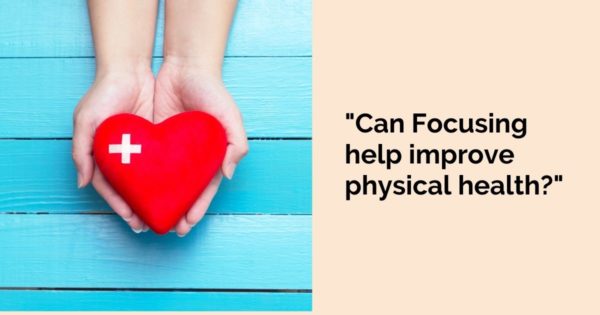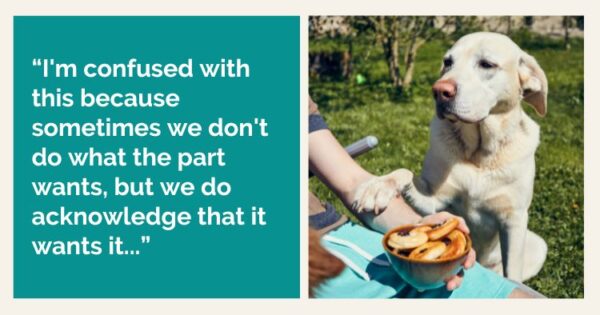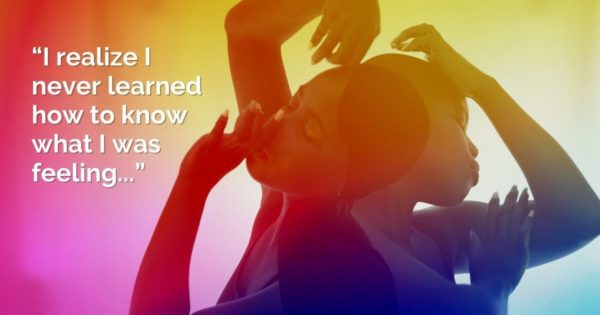What does it mean to be “highly sensitive,” and why is Focusing such a gift to sensitive people?
Dear Readers,
Wow, this is my 500th Weekly Tip! Thanks so much to all of you who read along!
This week I’m bringing you a guest post from Emily Agnew. Her specialty is bringing Focusing and other healing modalities to Highly Sensitive People. Might you be one? Let’s see!
Emily writes:

When I was a kid, my grandfather taught my sister and me how to paddle and steer our red canoe. He had just one condition: if we wanted to venture out of his sight, we had to capsize the canoe, then figure out how to get it back to the dock.
His big worry was drowning, but I had my own reasons to avoid going overboard: I dreaded the horrible things I knew were lurking under the deep water, waiting to grab an ankle or bite off a toe.
Nevertheless, we did it: we capsized the canoe and plunged into the water. I felt panic rise as I hurried to get myself back into the boat before the demons of the deep could strike. The trip back was laborious as the waterlogged canoe didn’t steer well. We had to paddle slowly and I was cold and soggy.
But all of it felt manageable to me. I knew I’d be OK. Why?
Because my sister was there.
Let’s face it: you can handle a capsized canoe or an overwhelming emotion by yourself if you have to. But the right kind of company makes it so much easier. This is particularly true if, like me and my sister, you were born with the trait of high sensitivity.
Highly sensitive people represent 15 to 20% of the population and are characterized by a trio of attributes: we take in a great deal more information from our environment (sensory sensitivity); we think about it a lot (depth of processing); and we feel emotions more deeply than the “other 80%” (emotional intensity). We tend to be conscientious, creative, compassionate, and highly self-aware.
But there is one catch, and it’s a big one. The synergy of these three wonderful qualities leads to the fourth characteristic of sensitive people: we are prone to overstimulation. We easily get overwhelmed by all we take in and feel—unless we have a way to process it. Focusing is the perfect tool for this.
No wonder sensitive people love Focusing, and even more so with a partner. Solo Focusing can be helpful, but like paddling a swamped canoe, it’s much easier with company. Here’s why:
12 reasons sensitive people love Focusing…and LOVE Focusing partnership
- Focusing empowers you to feel comfortable with your emotions, even the most intense ones. Focusing in partnership makes it even easier.
- You don’t have to worry about overwhelming your companion. The structure of Focusing partnership protects against this.
- Focusing empowers you as a sensitive person by helping you accept, value, and act on your own needs.
- When you lose touch with your own feelings because you are trying to sense other people’s moods and needs, Focusing brings you back to your body.
- Focusing helps you make decisions.
- Focusing gives you all the tools you need to find the right “in/out” balance in your life.
- In Focusing partnership you can have deep connection AND maintain control over your level of stimulation, which is often a “missing experience” for sensitive people.
- Your Focusing partner will never tell you that you are “too serious” or “too intense.”
- Focusing gets you out of your head when you get trapped in your thoughts. But it respects your thoughts too and doesn’t throw the baby out with the bath water.
- Focusing is a creative playground for sensitive people…partnership even more so.
- When you Focus, you re-connect to the pull of your “true north” so you can live with depth, meaning, and authenticity.
- Focusing is an elegant and economical way to meet your needs for support and connection: once you’ve learned the skills, partnership is free for life.
Paddle out of the bay, into the richness of the unknown
Once you learn to Focus, you can move from rough waters that threaten to flood your boat to a place of calm in which you can clearly sense your “right next step.” You can also sense inner ripples so subtle you might not have noticed them before: the “tug on your sleeve” of something quiet but important.
You are confident you can paddle back to home waters, whatever the waves or weather…and this liberates you to explore enticing new horizons, just as my sister and I did in our red canoe.
If you are highly sensitive, this confidence is a gift without price. Focusing partnership and sensitive people are a match made in heaven. I’ll explore this in more depth in the next five issues of my weekly e-zine, The Listening Post.
We recommend:
Read the rest of this article series by subscribing to Emily’s weekly e-zine, The Listening Post.
For more information about ways sensitive people can manage anxiety and overwhelm and tap their creative strength, click here.






